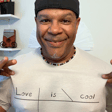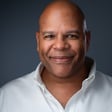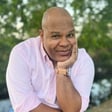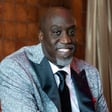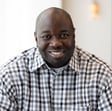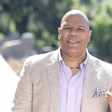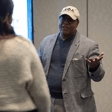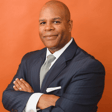
8. Theta | Beyond Leadership Titles with Travis Martin
"Leadership is so much more than a title/position or individual concept." Those are words that Dr. Travis Martin shared in a comment about leadership on LinkedIn. On his third tour as a university fraternity and sorority life leader, Travis visited "Ethocast" to talk about how he works with students to sharpen their leadership skills, starting with the practice of vision casting. He also describes the Social Change Model of leadership and why he believes that Greeks can be drivers of social change on campus.
About the Guest
Travis serves as the University of Michigan's associate dean of students and director of fraternity and sorority life. He serves as a divisional leader and member of the Dean of Students Leadership team. Travis is responsible for leading fraternity and sorority life (FSL) staff, affiliated sponsored and voluntary student organizations, student leaders and FSL alumni in the planning, development and implementation of activities and programs that support and advance the foundational values underpinning fraternal organizations. He is also responsible for executing a strategic vision to advance the community and for proactively managing the operational and administrative activities of FSL. In his capacity as associate dean, Travis responds to emergent student needs and issues within the Michigan community and represents the dean in a variety of capacities, including responses to emergent and unpredictable circumstances. The University of Michigan FSL community consists of the Interfraternity Council (IFC), Multicultural Greek Council (MGC), the National Pan-Hellenic Council (NPHC), the Panhellenic Association (Panhel), and their respective fraternities/sororities and its student leaders.
Prior to Michigan, Travis served as director of fraternity and sorority life at Northwestern University, senior coordinator of Greek life and the residence hall director at the University of Georgia, graduate resident director at the University of Arkansas, Fayetteville, and an admissions counselor at Mississippi Valley State University where he earned his B.S. in biology. Travis earned his master’s in higher education leadership from the University of Arkansas, Fayetteville in 2008 and his Ph.D. in college student affairs administration from the University of Georgia in 2019.
Ethocast is a "For Our Edification" limited series and is supported by Edify Ventures, LLC.

